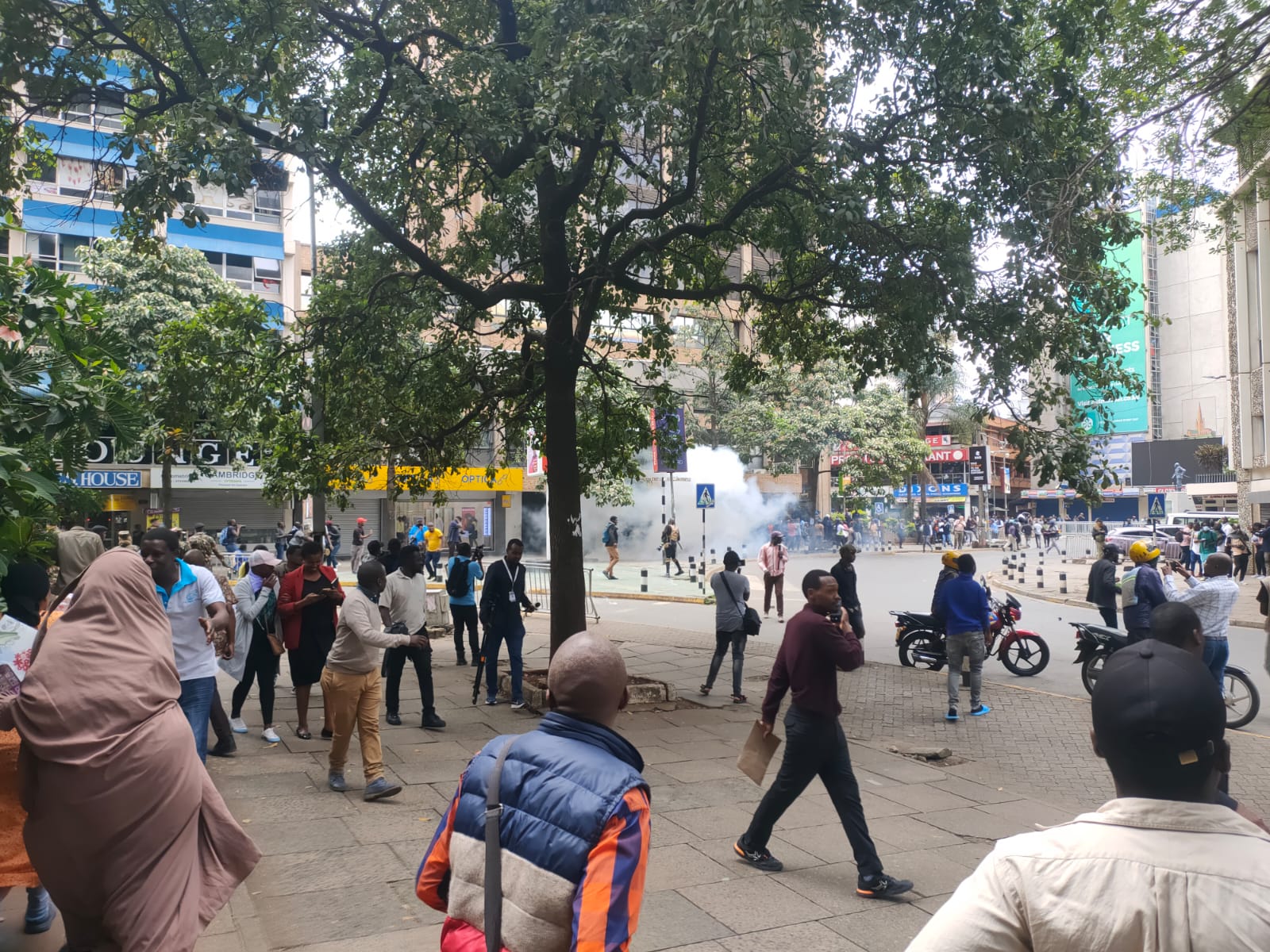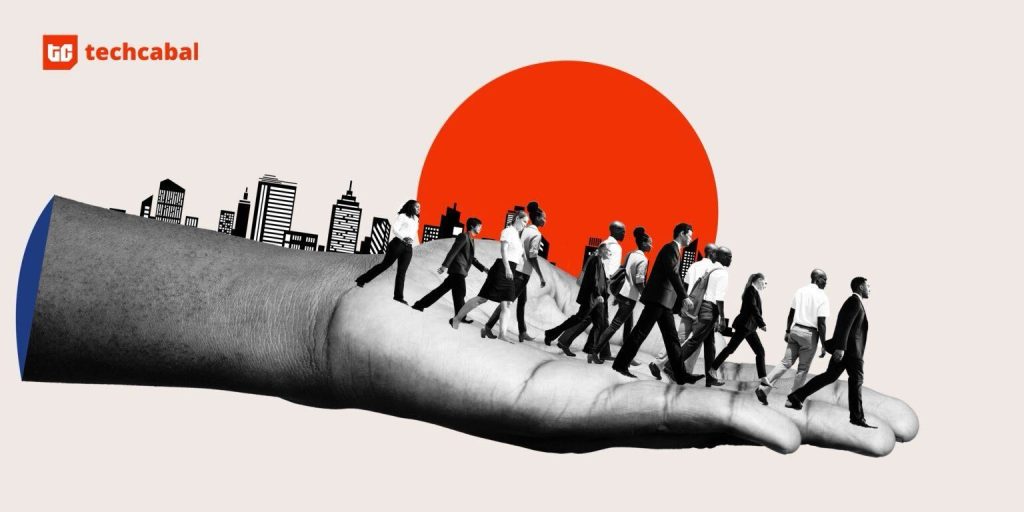#OccupyParliament began on Tuesday with protesters unable to gain access to Parliament. They’ll try again on Thursday when legislators plan to debate the controversial 2024 Finance Bill.
On Monday, the handwriting was on the wall. By Tuesday, when the ruling Kenya Kwanza coalition was ready to compromise on the unpopular 2024 Finance Bill, it was too little, too late. Despite offering to scrap some proposed taxes, many Kenyans believe the bill—which proposes new taxes on cars, mobile money transactions, alcoholic beverages, and other items—is a poisoned chalice and want it thrown out entirely.
For weeks, those sentiments remained online, and on the social media network X hashtags like #RejectFinanceBill2024 soon began trending. The hashtag also spread via humorous quips on Whatsapp channels and statuses. Eventually, the pushback against the 2024 Finance bill spilled offline.
By 11 am Tuesday, hundreds of angry Kenyans with anti-government placards had gathered at meeting points in downtown Nairobi. From the National Archives building and the bus terminal Kencom, they marched along Harambee Avenue to the parliament building chanting, “Ruto must go.”
Anti-riot police officers were resolute that the parliament building was off limits as they lobbed teargas into the crowd. Online activist Hanifa Farsafi was arrested, but the protesters, who want the government to scrap the Finance bill, could not be discouraged.
Videos of protesters chanting and singing in police cells across the city circulated online, with Kenyans claiming the events of Tuesday were a reminder of people power.
In what some would call poetic justice, a policeman injured his arm while throwing a tear gas canister into a nearby crowd. Small groups of people engaged police in running battles around the winding streets, hiding in narrow footpaths connecting main streets.
“Nearly everything is beyond our reach now. MPs must know that the power belongs to the people and they were elected to serve us,” said Frank Ojiambo, a 31-year-old activist.
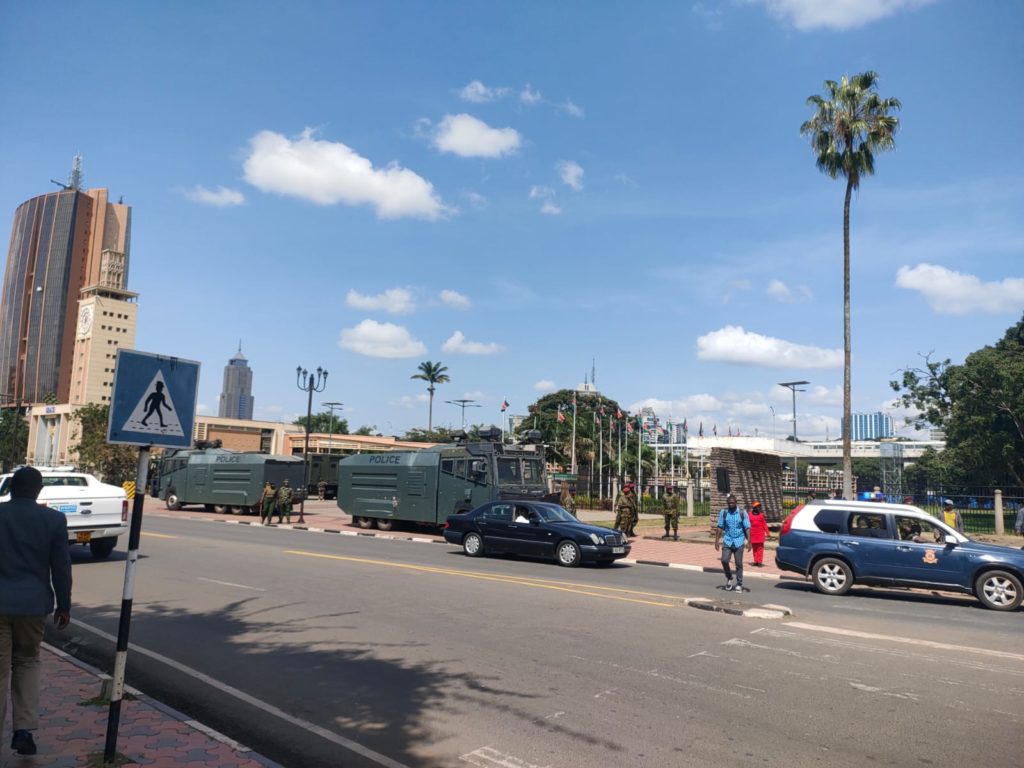
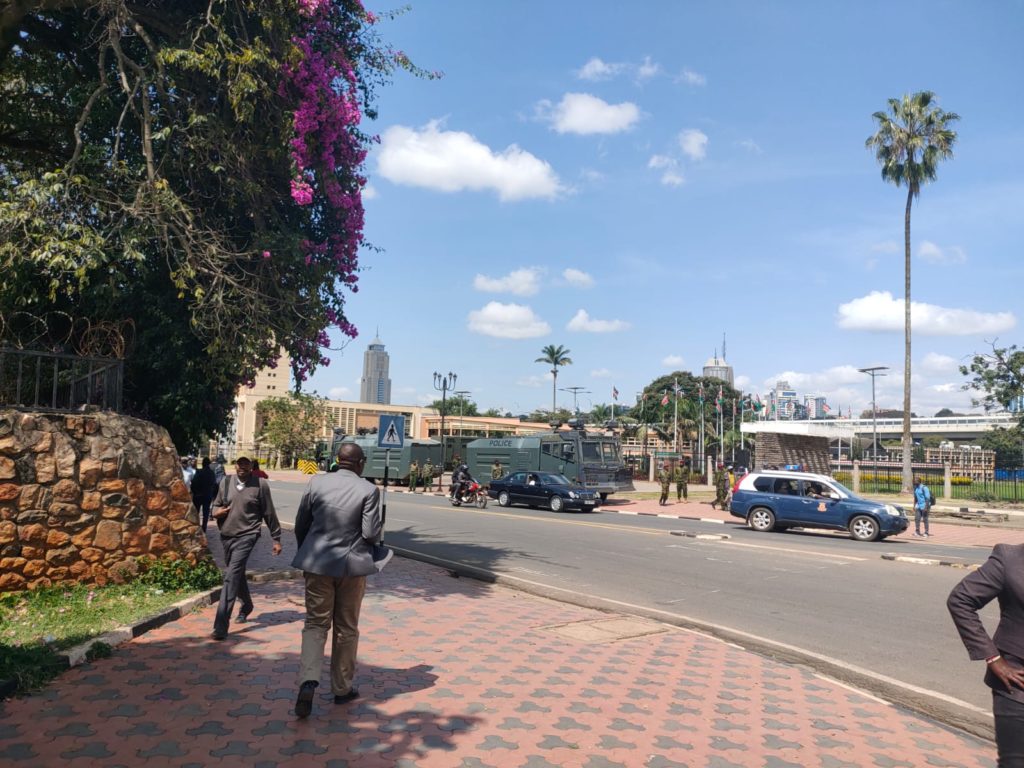
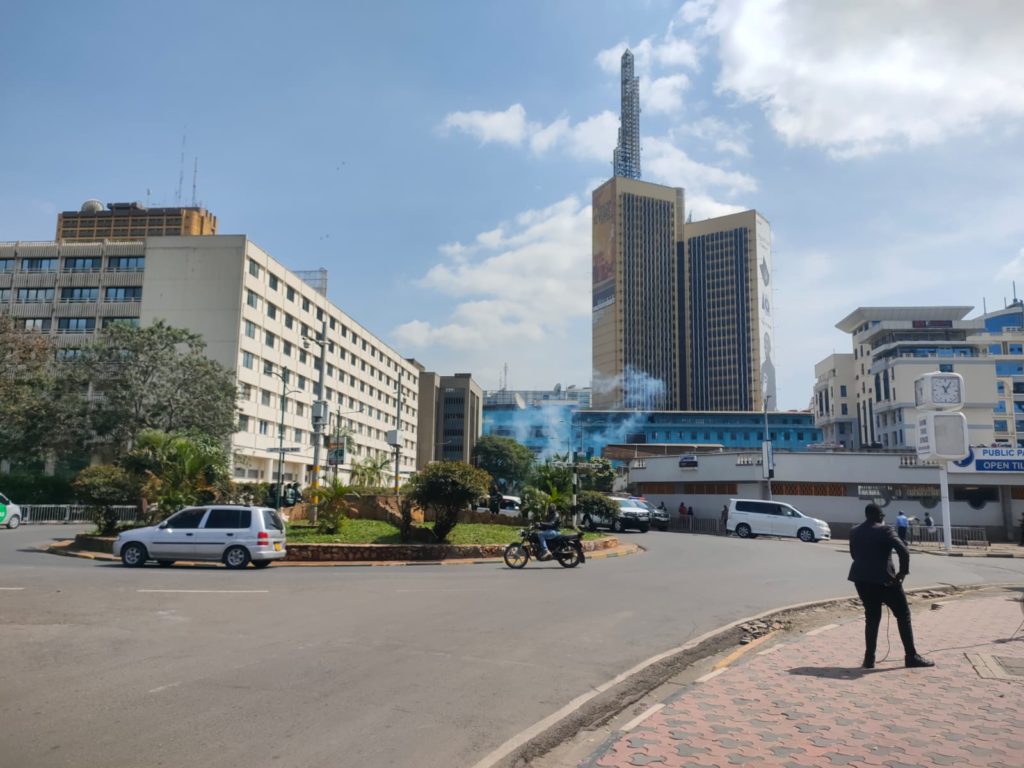
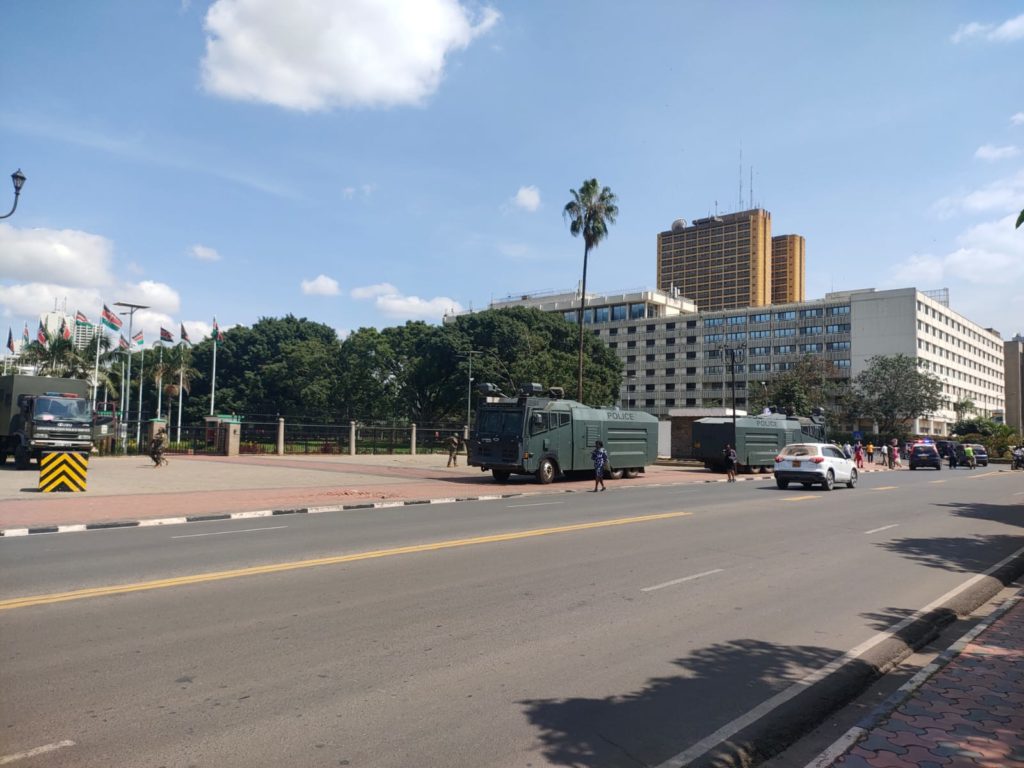
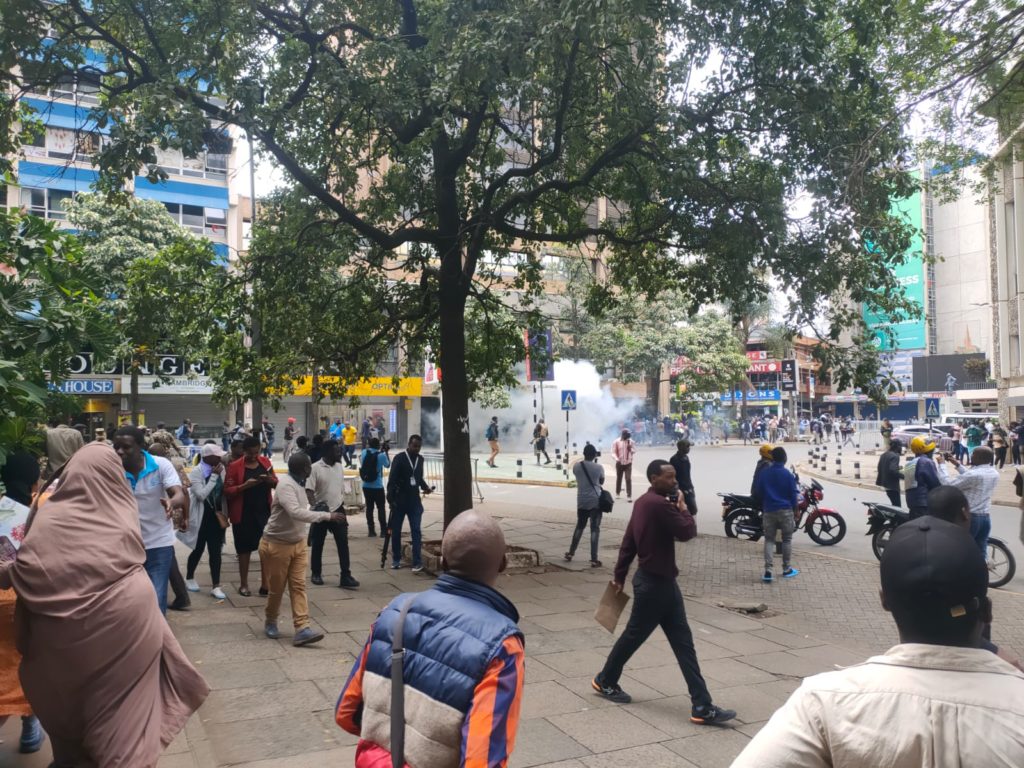
Unlike protests in 2023 organised by opposition groups, Tuesday’s rally attracted younger Kenyans often characterised as politically indifferent. On X and TikTok, the march was likened to a GenZ “revolution” as videos of young protesters were shared.
“We demand that MPs reject the bill and start fresh. We won’t accept an amended version meant to fool us,” Michael Muchiri, a 23-year-old first-year university student, told TechCabal.
Young opposition politicians chided the president for not listening to the public’s grievances. As it became clear the protesters would not gain entrance to parliament, Kimani Ichungwa, the majority leader in the national assembly, announced the house would continue debating the bill on Thursday.
“The president does not even listen to his advisers. The only public participation the president will listen to is demonstrations,” opposition MP Babu Owino told journalists.
“This is shameful, because this bill will take dignity from our citizens by imposing taxes on items like diapers and sanitary pads. These protests will continue and I urge Kenyans to demonstrate up to the State House.”
At 5 pm, the official time to end protests per Kenya’s constitution, there were chants in downtown Nairobi as the #OccupyParliament protesters made their way to bus terminals, promising to continue fighting until the “punitive” taxes are dropped.
Ruto, who won the Presidential election in 2022 with a pledge to uplift millions of Kenyans from poverty, has maintained Kenya must raise taxes to balance finances strained by mounting debt repayments and low revenue collection. Critics have argued that the tax policies target basic items like bread and milk at a time when many Kenyans are already struggling with the high cost of living.
Ruto’s administration said the tax hikes will raise an extra $2.7 billion (KES347 billion), which is needed to deal with the country’s growing debt burden and fund development projects, including new roads and affordable housing.
Kenya’s external debt is $85.6 billion (KES 11 trillion), part of which Ruto inherited from the previous administration. Treasury officials have argued that Kenya’s debt-carrying capacity is at a high-risk level, limiting the government’s options to fund the $30.3 billion (KES 3.9 trillion) 2024 budget.
“Our capacity to carry more debt is not sustainable so we have to raise revenue and cut expenditure. Any further accumulation of debt would mean Kenya will have no fiscal space,” Chris Kiptoo, treasury principal secretary, told parliament on June 12.









